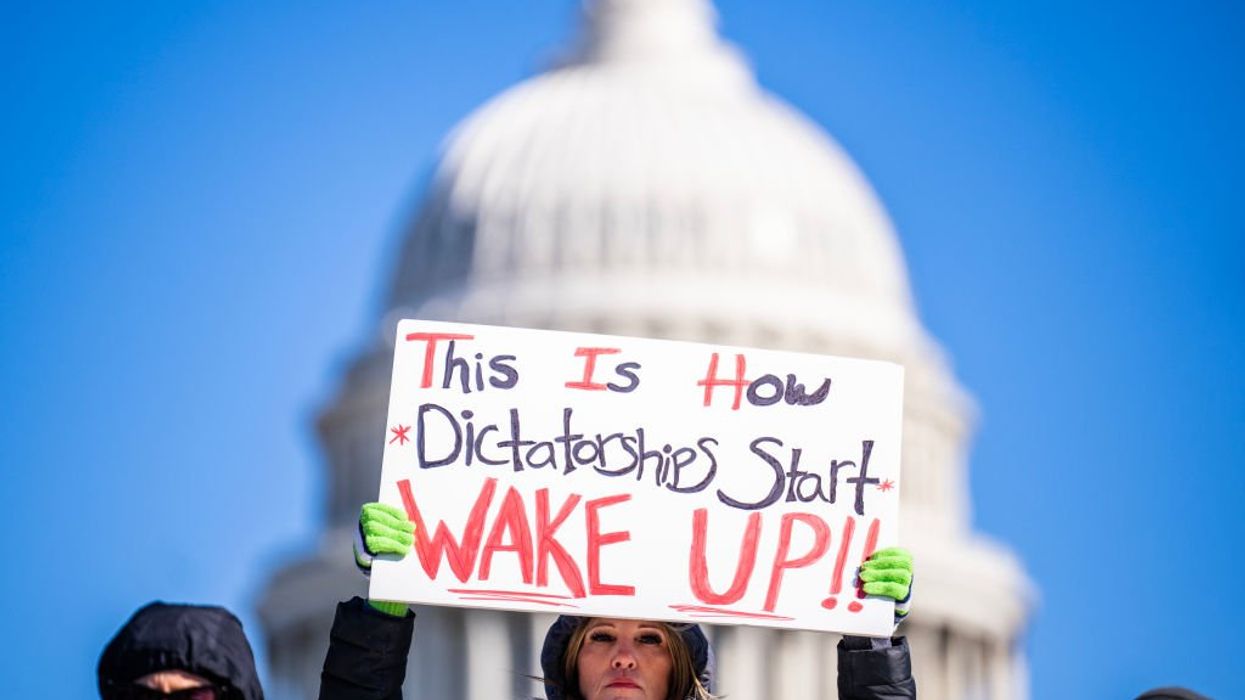
© 2025 Blaze Media LLC. All rights reserved.
Calif. Suspends Plan to Insert Data Chip in Driver's Licenses After Privacy Concerns
September 03, 2013
"The government also tends to expand programs far beyond their original purpose."
Controversial tracking/data chips have already made their way into driver's licenses in four states, and were on their way to California before privacy advocates balked, tabling the plan for now.
Wired reported that RFID (radio frequency identification) technology passed in the California Senate but was put on hold by the state's Assembly Appropriations Committee Friday. The point of the card would not be to track a person's movements, but it is its ability to do so that has some concerned.
Those against the use of RFID technology fear it could lead to total surveillance. A Texas teen recently battled against her school as it piloted a program using the tracking chips in student ID cards.
Although this school decided not to go forward with pursing RFID card formally, Wired reported that the use of the technology in California will likely made it back to the California Senate in a couple months.
 An enhanced Vermont driver's license is seen in Montpelier, Vt., Friday, May 22, 2009. (AP Photo/Toby Talbot)
An enhanced Vermont driver's license is seen in Montpelier, Vt., Friday, May 22, 2009. (AP Photo/Toby Talbot)
Part of the point of the card would be to facilitate easier border crossings. The Department of Homeland Security calls them "enhanced driver's licenses (EDL)," which it says "will signal a secure system to pull up your biographic and biometric data for the CBP officer as you approach the border inspection booth." To the DHS, such a system would make it easier for border patrol to ensure identity and speed the process or entering the country.
But others still worry about future implications.
“It’s not difficult to imagine a time when the EDL programs cease to be optional—and when EDLs contain information well beyond a picture, a signature, and citizenship status. The government also tends to expand programs far beyond their original purpose,” Jim Harper with the Cato Institute wrote mid-August. “Californians should not walk — they should run away from ‘enhanced’ drivers licenses.”
Under the DHS program, the RFID chip does not store personally identifiable information, rather it has a number that links to the info maintained in a secure DHS database. But Wired wrote that this might not always be the case.
"Consider the Social Security card. It was created to track your government retirement benefits. Now you need it to purchase health insurance and even obtain employment," Wired noted.
Other states that have RFID in their identification cards through the DHS' Western Hemisphere Travel Initiative are Michigan, New York, Vermont and Washington. These states began issuing such enhanced licenses in 2009.
--
[related]
Want to leave a tip?
We answer to you. Help keep our content free of advertisers and big tech censorship by leaving a tip today.
Want to join the conversation?
Already a subscriber?
more stories
Sign up for the Blaze newsletter
By signing up, you agree to our Privacy Policy and Terms of Use, and agree to receive content that may sometimes include advertisements. You may opt out at any time.
© 2025 Blaze Media LLC. All rights reserved.
Get the stories that matter most delivered directly to your inbox.
By signing up, you agree to our Privacy Policy and Terms of Use, and agree to receive content that may sometimes include advertisements. You may opt out at any time.


